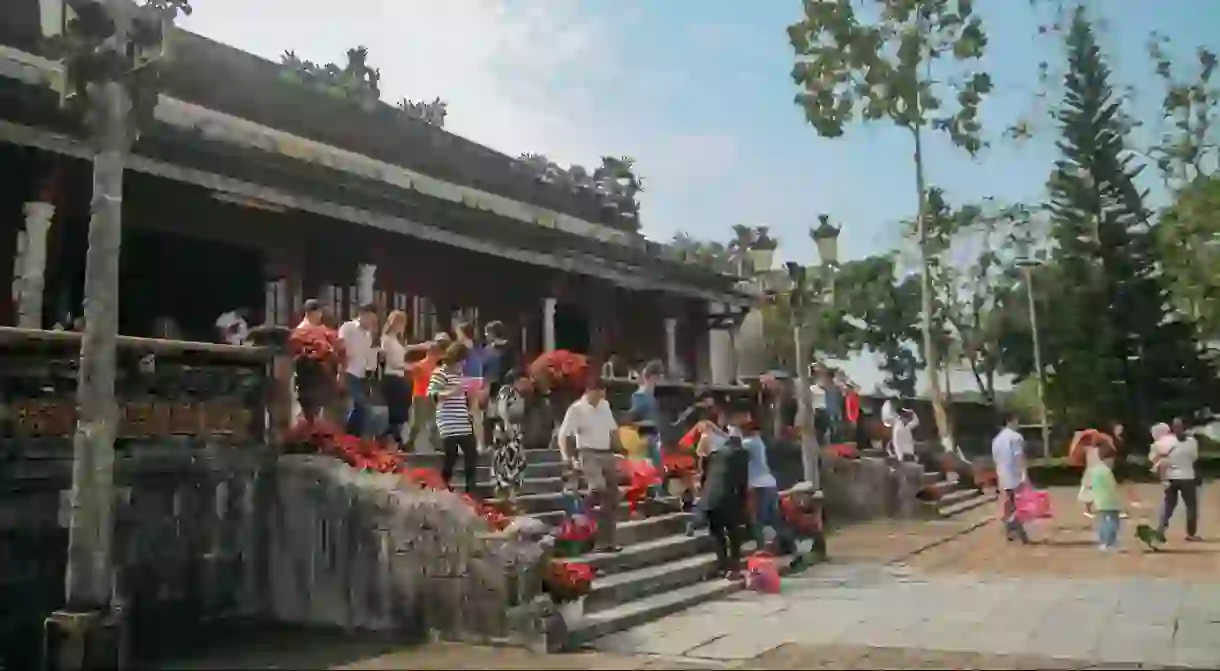5 Important Vietnamese Tết Traditions

Tết is typically reserved for close family and friends, with private ceremonies to honor their ancestors and, hopefully, to bring in a new year of health and prosperity. We were fortunate enough to join a family during this treasured holiday, and here’s what we saw.
Worship
One of the first ceremonies is Kitchen God Day. According to legend, there was an old couple who were without children and often fought because of this. When the husband cast out his wife, she left and found another man. The first husband eventually realized he’d made a mistake and tracked her down, becoming a beggar in the process. When he found his old wife, they spoke until her new husband came home. Fearful, the wife told her old husband to hide in some hay. Unfortunately, the new husband accidentally killed the first husband by burning him. The wife, grieving, threw herself into the fire. The second husband followed her.
These days, a week before the actual Lunar New Year, this trio still travels up to Heaven to give a report on earthly happenings. To send them off in style, Vietnamese people clean their homes and prepare traditional feasts that include things like mung bean cakes, boiled cock and kumquat. They also clean the altar and adorn it with fresh fruit and flowers. If you’ve ever seen a Vietnamese person tossing a carp into a lake or river around Tết, it’s because the trio needs these items to travel to heaven.





Buddhist altar
Below is a traditional Buddhist altar in Huế city. Buddha is at the front, while pictures of the ancestors are at the back. And no altar is complete without fresh fruits and colorful flowers.

Luck
Spotting some fresh greenery on the first day of the Lunar New Year is a sure sign of luck, but nature isn’t the only ‘green’ people are after. It’s also lucky to hang envelopes with cash. Most of it is fake, though, so don’t go around snagging red envelopes from trees. Elders give lucky money to children as well, provided the youngsters promise to behave and study hard.

The first guests
The first day after the Lunar New Year is a private affair, meant for immediate families. After that, extended families, friends and neighbors are invited over to share large meals and spend some quality time together. But the first guest is very important. Vietnamese people believe that the first guest in their home after the Lunar New Year is an omen for the upcoming year. They want somebody of stature — a respectable, moral person.


Calligraphy
In the past, it was considered lucky to receive the writing of a scholar. Because education was reserved for literate elites, calligraphy was a rare and treasured art form. That tradition still holds true to this day. Giving somebody a piece of ornate calligraphy is an admirable gesture in Vietnam. And there’s a reason all the banners are red. It’s the color of luck and prosperity.
















